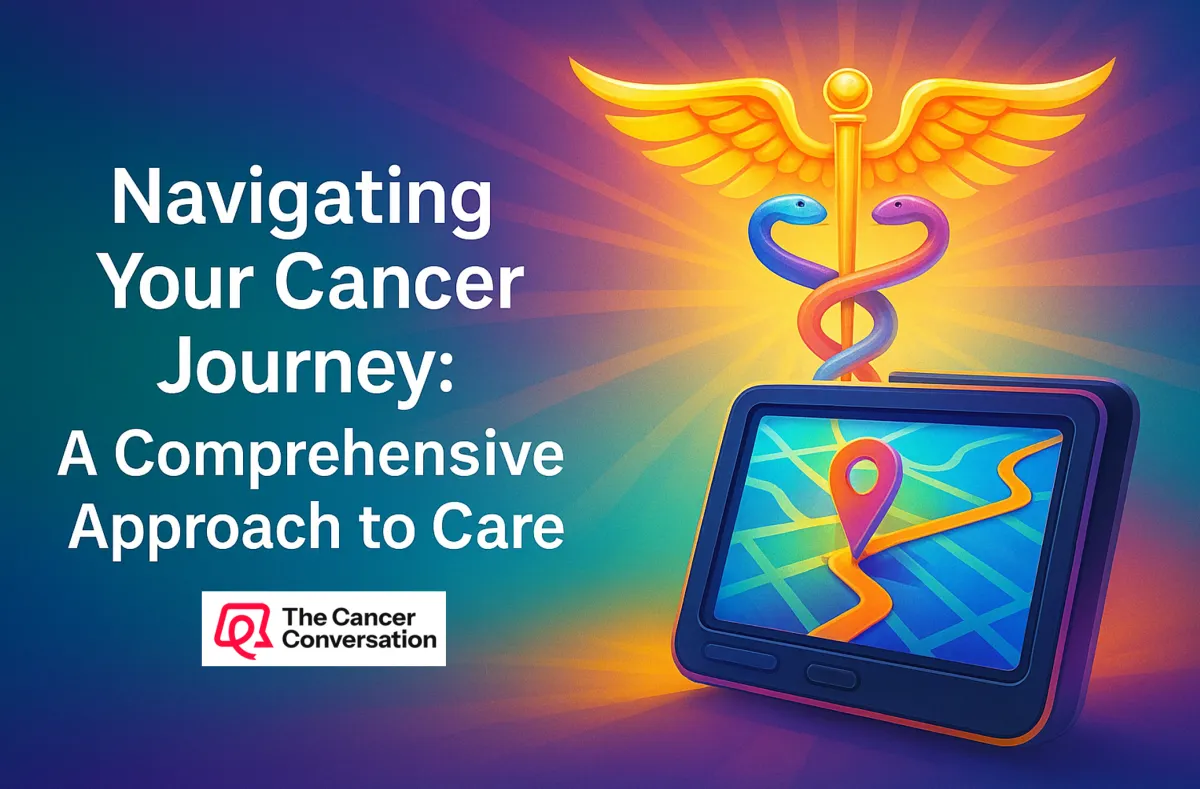
Navigating Your Cancer Journey: A Comprehensive Approach to Care
Facing a cancer diagnosis can feel overwhelming, but you don't have to go through it alone. Imagine a path where holistic cancer care embraces both natural remedies and conventional medicine, creating a comprehensive support system tailored just for you. Our 12-Step Cancer Recovery Program offers integrative treatment options designed to nurture mind-body wellness and promote personalized cancer treatment. Explore how our unique blend of therapies can empower your healing journey. Discover a community ready to support you every step of the way. Learn more about navigating healthcare here.
Understanding Holistic Cancer Care

Holistic cancer care is about treating the whole person, not just the disease. This approach integrates both natural and conventional methods to provide a comprehensive treatment plan. It focuses on supporting patients physically, emotionally, and spiritually, helping them achieve optimal wellness during their cancer journey.
Integrating Natural and Conventional Methods
Integrative treatment options combine traditional medical therapies with complementary approaches like nutrition, acupuncture, and herbal medicine. This blend enhances the body's natural healing processes and reduces treatment side effects.
Conventional treatments, such as chemotherapy and radiation, target cancer cells effectively but may come with intense side effects. Integrating natural therapies can help mitigate these.
Natural therapies include dietary changes, supplements, and mind-body techniques like yoga. These methods support overall health and improve quality of life during cancer treatment.
A balanced approach to cancer care emphasizes the benefits of both methods. Patients report improved wellness and reduced treatment burden, making this a favorable option for many. For more insights, learn how to navigate complex care systems.
Benefits of Mind-Body Wellness Practices
Mind-body wellness practices play a crucial role in holistic cancer care. These practices focus on the connection between mental and physical health, offering numerous benefits during cancer treatment.
Stress reduction is a primary benefit. Practices like meditation and deep breathing help manage anxiety and stress, improving mental well-being.
Enhanced immune function is another benefit. Mindfulness and relaxation techniques have been shown to boost the body's immune response, aiding recovery.
Improved quality of life is frequently reported by patients. Engaging in regular mind-body practices can lead to better sleep, mood, and overall satisfaction.
Overall, these practices contribute to a more resilient and empowered approach to cancer treatment. Understand more about enhancing the patient experience.
Personalized Cancer Treatment Options

Personalized cancer treatment focuses on tailoring therapies to fit the individual needs of each patient. By considering factors like genetic makeup, lifestyle, and preferences, a more effective and patient-centered care plan can be developed.
Exploring Our 12-Step Recovery Program
Our 12-Step Cancer Recovery Program offers a structured approach to personalized care. This program integrates natural and conventional methods to address the unique needs of each patient.
Initial Assessment: Evaluate medical history and current health status to determine the best treatment course.
Customized Treatment Plan: Develop a plan that includes both medical treatments and complementary therapies.
Regular Monitoring: Track progress and make adjustments as necessary to ensure optimal outcomes.
The program's design focuses on flexibility and adaptability, crucial for addressing the dynamic needs of cancer patients. Patients have access to a comprehensive support system, ensuring they never feel alone. Discover more about comprehensive care management.
Comprehensive Cancer Support Systems
Comprehensive cancer support systems offer a network of resources and services to aid patients throughout their treatment journey. These systems provide medical, emotional, and practical support, ensuring holistic care.
Medical support includes a team of healthcare professionals coordinating care and monitoring progress.
Emotional support is provided through counseling services and support groups, helping patients cope with the psychological impacts of cancer.
Practical support includes assistance with transportation, financial advice, and even meal delivery, addressing the daily challenges faced by patients.
Such robust support systems play a key role in enhancing patient outcomes and quality of life. Navigating the healthcare system efficiently is vital for leveraging these resources.
Building a Supportive Community

Building a supportive community is essential for those undergoing cancer treatment. A network of caregivers, peers, and healthcare professionals can provide encouragement, understanding, and practical assistance.
Connecting with Caregivers and Peers
Connecting with caregivers and peers offers emotional and practical benefits. Shared experiences create a sense of belonging and understanding, reducing feelings of isolation.
Peer support groups provide a platform for sharing experiences, advice, and encouragement. These groups foster a sense of community among those facing similar challenges.
Caregivers play a crucial role in providing daily support and advocacy. Their involvement is vital in navigating treatment decisions and managing care logistics.
Online communities offer additional support, providing a space for patients and caregivers to exchange information and resources.
Building these connections can significantly enhance emotional resilience and provide invaluable support. Explore community support options.
Empowering Your Healing Path Together
Empowering patients on their healing path involves fostering a sense of agency and collaboration in their care journey. This empowerment is achieved through education, support, and active participation in treatment decisions.
Education enables patients to make informed decisions about their care. Access to accurate and relevant information builds confidence and understanding.
Support networks encourage patients to take an active role in their treatment, fostering a collaborative approach to care.
Patient advocacy ensures that individual needs and preferences are considered, enhancing satisfaction and treatment outcomes.
Together, these elements create a supportive environment that empowers patients to navigate their cancer journey with confidence and resilience.








